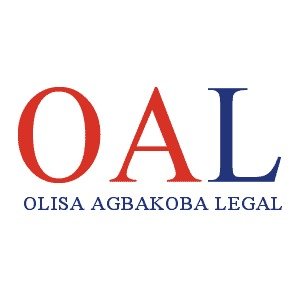Best Nonprofit & Charitable Organizations Lawyers in Apapa
Share your needs with us, get contacted by law firms.
Free. Takes 2 min.
List of the best lawyers in Apapa, Nigeria
About Nonprofit & Charitable Organizations Law in Apapa, Nigeria
Nonprofit and charitable organizations play a crucial role in Apapa, Nigeria, by addressing various social, economic, and cultural needs within the community. These organizations are often driven by objectives other than making a profit, such as social welfare, education, or community development. In Nigeria, such entities are typically registered as Incorporated Trustees under the Companies and Allied Matters Act (CAMA) with the Corporate Affairs Commission (CAC), ensuring they operate within legal frameworks. In Apapa, these organizations help address local challenges including healthcare, poverty alleviation, and education, making an understanding of the legal landscape essential for both existing and emerging nonprofits.
Why You May Need a Lawyer
Operating a nonprofit organization involves navigating complex legal requirements. Here are common situations where legal assistance may be beneficial:
- Registration and Compliance: Ensuring correct registration with the CAC and compliance with regulatory requirements.
- Governance Issues: Drafting by-laws, charters, and policies to guide the governance of the organization.
- Taxation and Finance: Understanding tax obligations and exemptions applicable to nonprofits and addressing issues related to fundraising and grants.
- Employment Law: Managing employee and volunteer relationships in compliance with labor laws.
- Intellectual Property: Protecting the organization’s name, logo, and other intellectual properties.
- Liability and Risk Management: Developing strategies to minimize liability and manage potential risks.
Local Laws Overview
Key aspects of local laws relevant to Nonprofit & Charitable Organizations in Apapa include:
- Companies and Allied Matters Act (CAMA): Provides regulations for the registration, management, and dissolution of nonprofits in Nigeria.
- Tax Laws: Nonprofits may be eligible for tax exemptions; thus, understanding the requirements and application process is crucial.
- Labor Laws: Applicable laws governing the treatment of employees and volunteers within nonprofit organizations.
- Fundraising Regulations: Guidelines on acceptable fundraising activities, including the need for permits or licenses in certain cases.
- Anti-corruption and Financial Crimes Laws: Laws that govern financial transactions and require transparency in nonprofits' operations to prevent fraud and corruption.
Frequently Asked Questions
1. How do I start a nonprofit organization in Apapa, Nigeria?
You need to register as an Incorporated Trustee with the Corporate Affairs Commission, requiring a minimum of two trustees and drafting relevant documents like the constitution, objectives, and by-laws.
2. What types of organizations qualify as nonprofits?
Any organization with objectives focused on public benefit like education, healthcare, poverty alleviation, and religious activities can be considered a nonprofit.
3. Are nonprofit organizations tax-exempt in Nigeria?
Nonprofits may qualify for tax exemptions but must comply with specific regulatory requirements and obtain the necessary certifications.
4. Can a nonprofit organization engage in commercial activities?
While primarily focused on public interest, they can engage in ancillary commercial activities, provided profits go toward achieving the organization's objectives.
5. What governance structures are required for nonprofits?
Nonprofits typically require a board of trustees or directors responsible for governance, plus clear by-laws and policies outlining roles and powers.
6. Do nonprofits need to file annual reports or audit statements?
Yes, they must submit annual reports and financial statements to the CAC to demonstrate ongoing compliance and operational transparency.
7. How does a nonprofit protect its intellectual property?
Register any trademarks, copyrights, or logos with relevant authorities to safeguard against unauthorized use.
8. What are the legal implications of fundraising for nonprofits?
Nonprofits must ensure fundraising activities comply with all relevant laws, including obtaining necessary permits and ensuring funds are used appropriately.
9. Can international NGOs operate in Apapa, Nigeria?
Yes, however, they must comply with both international guidelines and Nigeria’s local regulations, including registration with relevant authorities.
10. What are the consequences of noncompliance with local laws?
Noncompliance can result in penalties, fines, or dissolution of the nonprofit organization, making adherence to legal requirements critical.
Additional Resources
Several resources can be useful for those seeking advice or assistance regarding nonprofits in Apapa:
- Corporate Affairs Commission (CAC): Offers guidance on incorporation and compliance for nonprofits.
- Federal Inland Revenue Service (FIRS): Information on tax exemptions available for nonprofits.
- Nigerian Network of NGOs (NNNGO): Provides resources, training, and support for nonprofit organizations.
- Legal Practitioners: Consulting with legal firms specializing in nonprofit law can provide targeted advice and strategies.
- Ministry of Interior: Provides support and monitoring for international NGOs operating within Nigeria.
Next Steps
If you need legal assistance in managing your nonprofit or charitable organization in Apapa, consider the following steps:
- Assess specific legal needs: Identify areas that require legal attention, whether it’s formation, compliance, or governance.
- Consult with a qualified lawyer: Engage a lawyer with expertise in nonprofit law to help navigate complex legal environments.
- Stay informed: Keep abreast of changes in laws affecting nonprofits to ensure continuous compliance.
- Use available resources: Access local resources and networks such as the Nigerian Network of NGOs for support and information exchange.
- Regular audits and reviews: Ensure regular legal and financial audits to maintain transparency and accountability.
Lawzana helps you find the best lawyers and law firms in Apapa through a curated and pre-screened list of qualified legal professionals. Our platform offers rankings and detailed profiles of attorneys and law firms, allowing you to compare based on practice areas, including Nonprofit & Charitable Organizations, experience, and client feedback.
Each profile includes a description of the firm's areas of practice, client reviews, team members and partners, year of establishment, spoken languages, office locations, contact information, social media presence, and any published articles or resources. Most firms on our platform speak English and are experienced in both local and international legal matters.
Get a quote from top-rated law firms in Apapa, Nigeria — quickly, securely, and without unnecessary hassle.
Disclaimer:
The information provided on this page is for general informational purposes only and does not constitute legal advice. While we strive to ensure the accuracy and relevance of the content, legal information may change over time, and interpretations of the law can vary. You should always consult with a qualified legal professional for advice specific to your situation.
We disclaim all liability for actions taken or not taken based on the content of this page. If you believe any information is incorrect or outdated, please contact us, and we will review and update it where appropriate.










